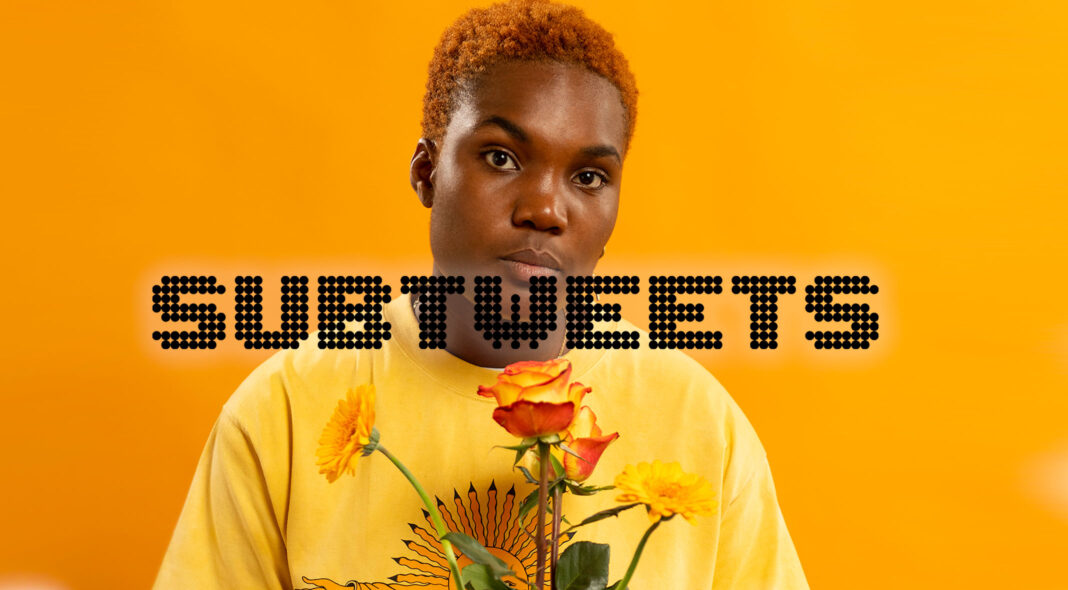After summer holidays, festivals or time away from school or work, many of us enter the Autumn period feeling refreshed, ready for the challenges of a new season. But what do you do when you’ve not yet had a break? Just a couple of weeks into September, a slew of artists have already cancelled upcoming tour and festival dates, citing poor mental health and exhaustion.
Having taken ‘Seventeen Going Under’ stateside, Sam Fender was first, pulling out of three headline shows, a support slot with Florence & The Machine and Life Is Beautiful festival, stating that it would be “hypocritical” of him to advocate for mental health in his songs without taking time for his own. A day later, Wet leg confirmed that they would be playing Life Is Beautiful, but that pulling out from New Mexico and Denver gigs had allowed them to have “big ugly cries and good sleep” in the whirlwind of an extensive international tour.
By the end of the week, Arlo Parks issued a frank Instagram post of her own, informing her fans that she too has had to take pause from 18 months on the road, with her mental health dropping to a “debilitating place”. “I’m a human being with limits… I really need to step out, go home and look after myself.” With Shawn Mendes, Disclosure, Russ and Kennyhoopla also making similar posts in recent weeks, it is clear that the issue is becoming less of a rarity and more of a pattern, affecting artists of all statures and styles.
Quitting, cancelling and postponing can be viewed as a positive sign of artists’ increasing ability to advocate for their own self-care, but is also a worrying indictment of just how easy it is in the music industry to overwork yourself into oblivion. Even if they haven’t quite got to the point of calling a halt, many artists are in the same boat of having to admit that they’re bloody knackered. Self Esteem, for example, often caveats her posts with genuine gratitude, but still illuminates the distinct lack of glamour that ‘making it’ in the industry can bring, racking up 34 festival appearances this year. Even in K-Pop, where it is broadly accepted that idols take on impossible schedules without complaint, hugely successful artists have begun to speak out, take hiatus or even quit, recognizing that their bodies can take no more.
Though many artists cite live performance as the best part of the job, the harsh reality is that a full tour is often not all that dissimilar to being on an elongated lads holiday — fun at first, but quickly descending into the kind of fatigue that has you longing for your own bed. On tour, you miss out on family events and celebrations, you likely don’t eat or sleep especially well, and the omnipresence of drink or drugs in backstage environments can easily become a problematic crutch. There’s the nervous energy ahead of a performance, the heightened euphoria to shake off after a show, and the physical exertion of singing or dancing or playing an instrument night after night. Sightseeing days off might seem like a relaxing opportunity, but they quickly get filled up with press, or travelling, or chats with the eager fans who have figured out exactly where it is that you’re staying. And all of that is before you even account for other forms of illness; physical injury, germy meet-and-greets, any other medical conditions that an artist may have to manage outside of their home routines. As Self Esteem suggests, it is not a huge amount of fun trying to sing comfortably in a white silk suit on the heaviest day of your period, or trying to put on an upbeat performance when you feel anything but.
Bands and artists can of course take some precautions. They can neck vitamins, enrol in regular therapy, stay at nicer hotels and try not to cane it too hard at the aftershow parties. But when you’re starting out or don’t have a fully supportive team in place, it’s often difficult to justify extra costs or say no to things without seeming ungrateful. With so much already lost to the pandemic both financially and emotionally, touring is one of the few viable options left for artists to make decent money and cut through the noise of social media, heightening the desire to go HAM instead of going home. Sam Fender, Wet Leg and Arlo Parks all blew up in the pandemic, and having missed out on the teeth-cutting venues that would have eased them in, they’re now in the position of wanting to capitalise on this success, filling rooms and performing to as many people as possible. But when you’re dealing especially with young musicians who have been open about their own sensitivities and introversions, is it really surprising that they’re feeling burnt out under the pressure?
While the majority of fan reactions to these recent cancellations have been broadly understanding, there are of course some ruffled feathers. It’s easy to see why fans might feel disgruntled, sceptical even; after so much pandemic upheaval, we’re gagging to get back to a sense of predictability, and sometimes, it can feel as if bands wait until the very last minute to announce a change, or turn things down because they had a better offer. Given that the recent flurry of cancelled events has involved British artists stepping away from American tours, it might feel like they just can’t be bothered, valuing their home audiences more than those overseas. Many still see professional musicianship as a privilege, believing that artists should dig extra deep in order to deliver to their audience.
With cost of living putting extra pressure on the ways in which we decide to spend our money, there are also the logistical frustrations of rescheduling. When recent tube strikes meant that Coldplay had to shift one of their Wembley Arena shows to two days later, fans were understandably aggrieved that their hotel and travel money could not be compensated for, even if they could make the new date. When you’ve been looking forward to something for a really long time — perhaps even relying on it for the good of your own mental health — it can be quite a blow to deal with.
Like Coldplay, sometimes the logistics are simply unforeseen, a one-off that is essentially out of the band’s hands. But in instances where an artist is the one to pull the plug, we need to trust that they are not taking the decision lightly. We have to believe that they have tried their best, and that pausing when they need to is exactly the thing that will buy them long, prosperous careers. In Sam Fender’s words, “feigning happiness and wellness for the sake of business” is not conducive to the kind of healthy headspace that lends itself to good music, or internal peace. Though it is often tempting to vent in their direction, giving artists the space and time to recover properly will have them back at their best a lot quicker than tagging them in mean threads.
Of course, the best way to avoid these situations at all is through prevention. For Sam and Arlo in particular, two artists that have long advocated lyrically for deeper understanding around mental health, it’s great to see them allowing themselves the same grace that they sing about, showing others that it’s OK to set boundaries. But in an industry that is so focused on piling things high and fast, the support needs to go beyond simply cancelling a few shows.
If we are to create safer, happier, more sustainable touring environments, it needs to become financially viable again to book shorter runs and take regular breaks for artists to recover. Governmental support to accommodate for the increased expense of post-Brexit touring would be a good start, but also perhaps a deeper change in how the industry is structured. We’ll never go back from streaming now, but a reform in how recording revenue is distributed has never felt more pressing, a way to alleviate the pressure of constant gigging.
From the fan side, small psychological changes can help too. It can be tough when many of us are struggling ourselves, but sending a supportive tweet, buying some physical product or even reflecting on one’s own gig-going decorum can make all the emotional difference. On a tough touring day, a genuinely attentive, respectful crowd can do a lot for somebody who is feeling worn-out, taken from granted or talked over.
That this new guard of musicians feels able to speak up is something to applaud, but if the changes are only temporary, they are merely a sticking plaster over a much larger burnout wound. These are our generation’s best and brightest, and they deserve to be looked after; the same way that their music so often looks after us.
If you’re reading from the UK, mental health support can be found through the charities Mind, YoungMinds and Childline. HelpMusicians also offer industry-specific resources through their free, 24/7 service ‘Music Minds Matter’.







